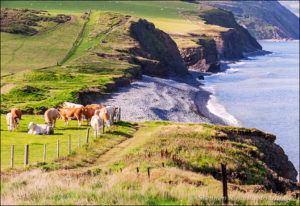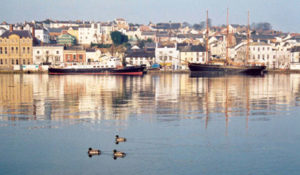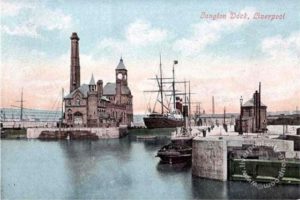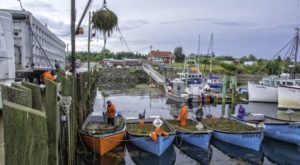
I have been reading about genetic memory, and pondering how it connects to writing, everyday choices and lifelong yearnings.
Genetic memory refers to how the experiences of our ancestors are embedded physically within us, and continue to affect us daily. The idea is that the experiences of fourteen or more past generations, or perhaps ancestors who lived as many as 1,000 years ago, make up what we know and feel.
Do we still grieve and react and process our lives through the lens of these ancestors’ experiences?
Last April, a group of Spanish scientists (at the Barcelona Centre for Genomic Regulation) published a study that provides some scientific answers. Here’s a paragraph (from IFLScience!) that sums up their work for laypeople:
When your ancestor goes through a period of excessive stress, this “experience” can be added to your genome. An extra layer of information is placed on top of your DNA sequences. The DNA sequence itself doesn’t change, but its “clothes” do, so to speak. [1]
Those “clothes” can dictate our health, emotions, eating habits, vulnerability to stress, etc.
Can they affect our abilities and talents? [2]
Can they affect our imagination?
I imagine they can…
I’ve been reading through old writing of mine lately (to see if any of it deserves to be kept [3]), and I’ve noticed some obsessions: the sea is a prominent one. I’ve also noticed islands, women striding across fields or through various woods, animals of various kinds, and especially dogs, so many dogs!

Dominating almost every one of my stories is a struggle between visceral instinct and social constraint. As a child I was drawn to stories like Robinson Crusoe, Wuthering Heights, and Tarzan of the Apes, as an adult to Kaspar Hauser and The Wild Child. In this post I am not discussing (nor defending of course) the class, race, gender, or child-abuse horrors presented in these stories. But I know that those horrors are in my past, near and far, and that my ancestors have been on both sides of the horrors.
Class and gender struggles feature in my stories: so many women characters struggling in life roles too small for their intellect and abilities. This isn’t unique to me or my past, of course, but perhaps it is in terms of my personal obsession with the morality around these themes. Do I still feel the injustices of my parents, grandparents, great-grandparents, and back and back?

The towns and cities my ancestors were either born in, or lived in most of their lives, are nearly all along the sea. Many have the same brightly-painted red and blue and yellow houses that Lunenburg houses have, Lunenburg being the town that my husband and I both instantly fell in love with (he has similar English/Irish/Scottish roots to mine—which extend back to Romans, Angles, Saxons, Danes, Vikings, Normans, and who knows what else.)
I wonder: Are the landscapes we are drawn to dictated by our ancestors too?

My ancestors were sailors, sometimes captains, sometimes crew. They were musicians and writers. Merchants. Anglican ministers. Lighthouse keepers. Farmers. Travelers. Some were landowners. My paternal grandmother emigrated to Canada as an almost-orphan, indentured servant, age 11 (“Home Children”). My maternal grandmother can trace her family back to a William the Conqueror advisor and the Plantagenets. Some of my ancestors were town mayors and lawyers, others were labourers and shoemakers. One great-grandmother was born in India because her father was in the British army there. One great-grandfather came over from Ireland to Liverpool in the mid-1800s in the Great Famine, and married a Scot.

They have so many secrets, some that I have pried from the past, some lost forever… but… my imagination shines light on them.
Where does that imagination come from? Why does a simple cup of black tea feel like it goes back centuries? Or a ballad in a Dorian mode, or a ship docked in the Lunenburg harbour?
Where does my curious blend of fears and resilience come from?

I feel as if I have ridden the horses of my ancestors, sailed their seas, cried their tears and rejoiced in the same beautiful joys that they treasured.
Am I making all this up? Is it just my imagination? Is imagination “real” and affected by epigenetics?
Fascinating, to me, to consider this, and I would be fascinated to hear about what you know of your own ancestors… please add a comment with as much detail as you’d care to share. How do your ancestors’ experiences affect your life choices, your writing, your art, your fears and dreams?
With love,
Tricia
FOOTNOTES:
[1] It’s called epigenetics, and here’s a Guardian article on that.
[2] Here’s a Scientific American article on savants that speaks to this idea.
[3] I’ve read through my old stories and heard a voice in my head urging me to chuck them all out and start anew. But just as that voice seems loudest, I come upon some miraculous story, or even just a dazzling paragraph, revealing parts of me that have been obscured by my many years in the administrative salt mines. It’s as if I am watching myself clamber out of those salt mines, my head not into the clear air quite yet, but on its way.
I will always remember reading Carl Sagan’s “Dragons of Eden” in which he postulates or suggests maybe, that humans may carry the ancient fears of their ancestors in the ‘racial memories’. One piece of evidence he adduced-which I cannot say I have verified-is that in many languages the sound we use to draw attention and create silence in our listeners imitates the hiss of a snake. “Shhhhhh” we say in English. If serpents and other lizards were our ancestor’s enemies, it makes sense that that sound would make us stop and vigilantly look around for danger, especially over our heads. Of course today we have little need to fear snakes but our ancient memories kick in anyway.
Hi Peter, I’ve never heard that idea that “shhh” is based on a warning of snakes, but it makes beautiful sense to me. Thanks for sharing that tidbit. I’ve read that many of the things we think of as beautiful, too, are based on our needs (for instance, a beautiful view includes water to slake our thirst, open space so we can see predators, trees that may contain fruit). Here’s a book about this: http://press.uchicago.edu/ucp/books/book/chicago/S/bo14525685.html
Another fascinating entry, Love it! My husband and I met as travelers and we continue to travel. All landscapes attract us , the sea, the mountains, the deserts, the farms. I know something about my ancestors, they were Celts like yours. My husband is 100% Greek. Perhaps we have these genetic memories, I am not sure. For myself, I feel more inclined to think about past lives, rather than genetic memory. I am drawn to Asian culture as if I lived it , I have always been fascinated with the East. My love for yoga quenches this yearning for now.
Hi Diane, I just read that the Celts were not a racial group, per se, but spread across a variety of peoples… it’s fascinating… I intend to keep learning more. Being here in Nova Scotia makes me feel so much closer to my ancestors than even Ontario did. There are many Scots living in Nova Scotia (duh–of course there are! It’s New Scotland! But somehow I was surprised by how visible and present Scots–and other UK folks–are here). I also think past lives/reincarnation is fascinating…
I do believe we embody our histories. This quote from James Baldwin: “History is not something to be read. And it does not refer merely, or even principally, to the past. On the contrary, the great force of history comes from the fact that we carry it within us, are unconsciously controlled by it in many ways, and history is literally present in all that we do.” (My father, on the other hand, refused to believe there was anything to be gained by looking at the past.)
I like your thoughts about what landscapes feel like home. For me, not mountains or oceans, though I stand in awe of both. I believe my people were not sea or ocean or mountain people, but inlanders and flatlanders. Perhaps they were forest people. I know they came from Germany and central Europe – what is now the Czech Republic and perhaps Poland or Lithuania.
And I love reading your blog!
Hi Suzy, What an eloquent quote. Thank you for it, and thanks for your kind words about my blog.
I am curious about why your father did not want to look at the past. Perhaps it was just too painful? Or he figures (with good reason I think) that humans are just too stupid to learn?!
Forest people… it sounds so much better than the names of our countries….